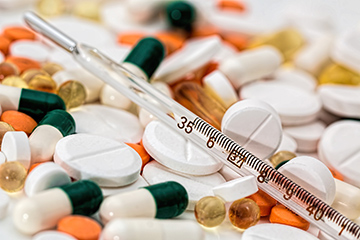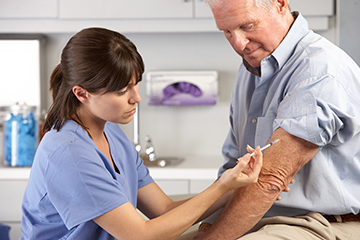What you need to know about antibiotics
 People all over the world are becoming resistant to antibiotics and other antimicrobial medicines. This is mostly a result of taking the medication in ways which aren’t recommended. There’s a big need to educate the public about antimicrobial resistance to try and preserve this very important health treatment.
People all over the world are becoming resistant to antibiotics and other antimicrobial medicines. This is mostly a result of taking the medication in ways which aren’t recommended. There’s a big need to educate the public about antimicrobial resistance to try and preserve this very important health treatment.
What are antibiotics?
Antibiotics are strong antimicrobial medicines which are prescribed for bacterial infections. Antibiotics will stop the bacteria from reproducing or kill them. This helps your body’s natural defences and immune system to fight the infection.
What are antibiotics used for?
Antibiotics target microorganisms such as bacteria, fungi and parasites. Antibiotics aren’t effective against viruses.
It's important to know whether your infection is caused by bacteria or a virus. Infections like the common cold and sore throats are generally caused by viruses - antibiotics don’t work against these viruses.
If antibiotics are overused or used incorrectly there’s a risk that the bacteria will become resistant that means that the antibiotic becomes less effective against that type of bacterium in future.
Antibiotic resistance happens when bacteria change and become resistant to the antibiotics used to treat the infections they cause.
 Causes of antibiotic resistance
Causes of antibiotic resistance
The following are some of the causes of antibiotic resistance,
- The over-prescribing of antibiotics.
- Patients not finishing their treatment.
- Over-use of antibiotics in livestock and fish farming.
- Poor infection control in hospitals and clinics.
- Lack of hygiene and poor sanitation.
- Lack of new antibiotics being developed.
What you can do to prevent antibiotic resistance.
These are the ways you can help prevent antibiotic resistance:
- Only use antibiotics when prescribed by a certified health professional.
- Always take the full prescription, even if you feel better.
- Never use left-over antibiotics.
- Never share antibiotics with others.
- Prevent infections by regularly washing your hands, avoiding contact with sick people and keeping your vaccinations up to date.
What can health workers do to prevent antibiotic resistance?
 Antibiotics must be handled with care so that they remain effective for as long as possible. Health workers can do the following to ensure that antibiotics stay effective:
Antibiotics must be handled with care so that they remain effective for as long as possible. Health workers can do the following to ensure that antibiotics stay effective:
- Keep your hands, instruments and environment clean.
- Only prescribe and dispense antibiotics when they’re needed and according to current health guidelines.
- Report drug-resistant infections to your doctor immediately..
- Explain to patients how to take antibiotics correctly, what’s antibiotic resistance and the dangers of misuse.
- Explain to patients about preventing infections (such as vaccinations, handwashing, safe sex, covering nose & mouth when sneezing and coughing).
We can make a difference to prevent antibiotic resistance. Ask your doctor if antibiotics are really necessary to treat your infection.
Follow the instructions of your health care practitioner carefully to make sure that you used the prescribed medicine.
Find your nearest community health centre .
Get Smart about Antibiotics.


